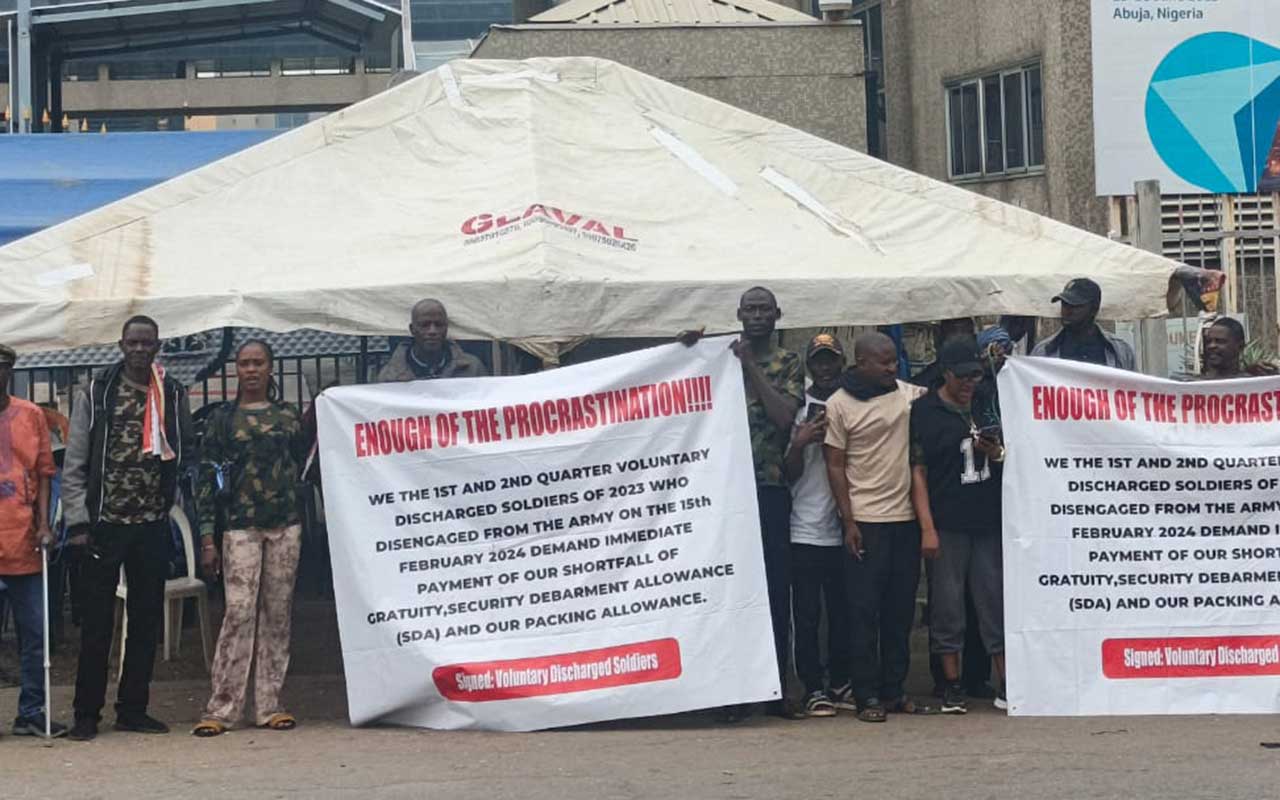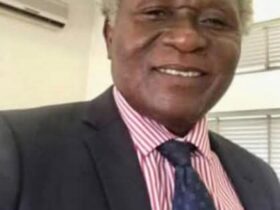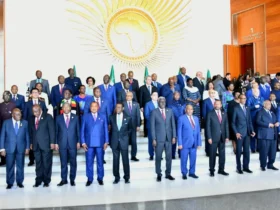Here’s a more engaging version of the title: **”The Urgent Case for Paying Soldiers’ Entitlements: Why Their Protests Demand Action”**

There are numerous valid reasons why the grievances of Nigeria’s retired military personnel regarding unpaid demobilisation allowances and other benefits deserve urgent attention. These reasons encompass justice, national security, humanitarian concerns, and socio-economic stability. Consequently, the recent caution issued by the Defence Headquarters (DHQ) against protesting ex-servicemen is misplaced and warrants reconsideration.
The military leadership has dismissed the demands of the retired officers as unfounded, citing government policies and timelines that allegedly prevent meeting their requests. Labeling their protests as unjustified fails to acknowledge the sacrifices these veterans have made, including risking their lives for the nation’s security.
Frustrated by the delay in receiving their rightful dues, many former soldiers have repeatedly obstructed access to the Federal Ministry of Finance in Abuja, demanding payment of their outstanding gratuities and allowances. The DHQ, however, condemned these actions as disruptive to governmental functions and maintained that the soldiers are not entitled to the benefits they seek.
To clarify, prior to the introduction of the new minimum wage, two separate scales were used to calculate soldiers’ gratuities and demobilisation allowances. The first scale, effective from January 1 to July 28, 2024, applied to some retirees, while the second scale, aligned with the new minimum wage, came into effect on July 29, 2024. The DHQ insists that the updated wage scale cannot be retroactively applied to those who retired before this date.
Despite these explanations, the protesting veterans remain steadfast, refusing to vacate the Ministry’s premises until their claims are settled. According to Nigerian legislation, including the Military Pensions Board Act of 1979 and the amended Pension Reform Act of 2014, these ex-servicemen qualify for pensions, gratuities, and other retirement benefits. Eligibility criteria require officers to have served at least 10 years and enlisted personnel 15 years, conditions met by most, if not all, of the protesters.
Failure to disburse these payments constitutes a breach of contract and undermines the rule of law. Regarding the applicability of the new minimum wage to past retirees, it can be argued that since gratuities are calculated based on the “basic pay at retirement” or rank at discharge, retroactive application of the new wage may conflict with legal principles and contractual agreements. Without explicit legal provisions or court rulings mandating recalculations, enforcing the new wage scale retroactively could face legal challenges.
Nonetheless, given Nigeria’s current inflationary pressures and rising living costs, fairness suggests that veterans’ benefits should be adjusted according to the new minimum wage. Although the current minimum wage of N70,000 is modest, applying it to calculate entitlements would at least offer a more equitable outcome.
Indeed, the Pension Reform Act of 2014 links the minimum pension to the national minimum wage, requiring adjustments to ensure no pensioner receives less than this threshold. Politically and morally, it is compelling to align retired soldiers’ terminal benefits with prevailing wage standards and living conditions.
These veterans have risked their lives defending Nigeria’s sovereignty and internal security, with many suffering permanent injuries or psychological trauma such as Post-Traumatic Stress Disorder. It would be unjust for the nation to deny them a dignified retirement through adequate gratuities and allowances. Humanitarian principles demand that those who have sacrificed for the country be cared for in their later years.
Moreover, the treatment of retired soldiers directly impacts the morale of active service members. Witnessing neglect of their predecessors can diminish motivation, loyalty, and willingness to endure hardships. Many veterans face poverty, homelessness, and health challenges due to unpaid benefits, fostering resentment that could destabilize national security. Disaffected ex-military personnel may become susceptible to recruitment by criminal or insurgent groups, posing further risks.
Providing comprehensive benefits to retired soldiers not only enhances their quality of life but also reduces their reliance on social welfare programs and stimulates economic activity through their spending. It also alleviates the financial burden on families and communities supporting these veterans.
Upholding the dignity of retired military personnel aligns Nigeria with international human rights standards and bolsters the country’s global reputation. Ultimately, honoring these servicemen reflects fairness, gratitude, and respect for the armed forces, strengthening public confidence in government institutions.







Leave a Reply